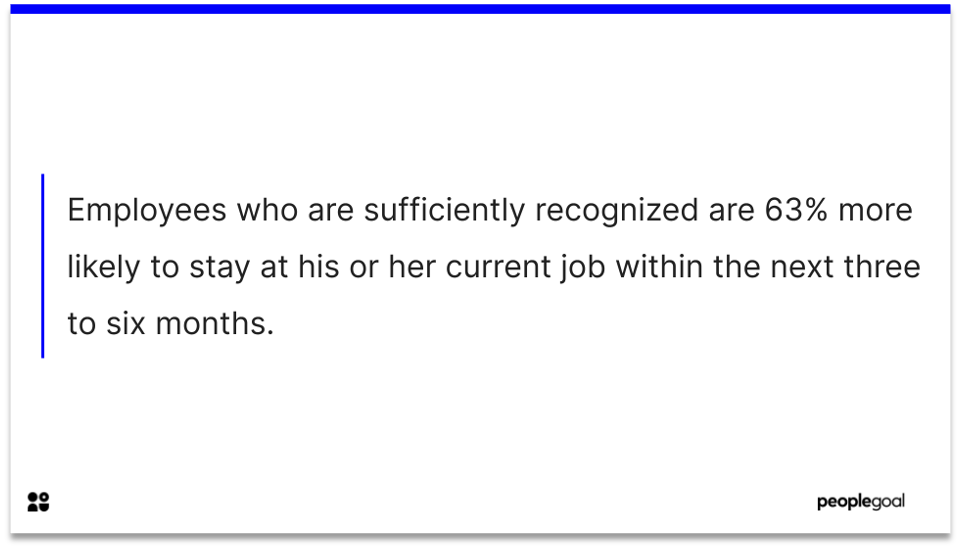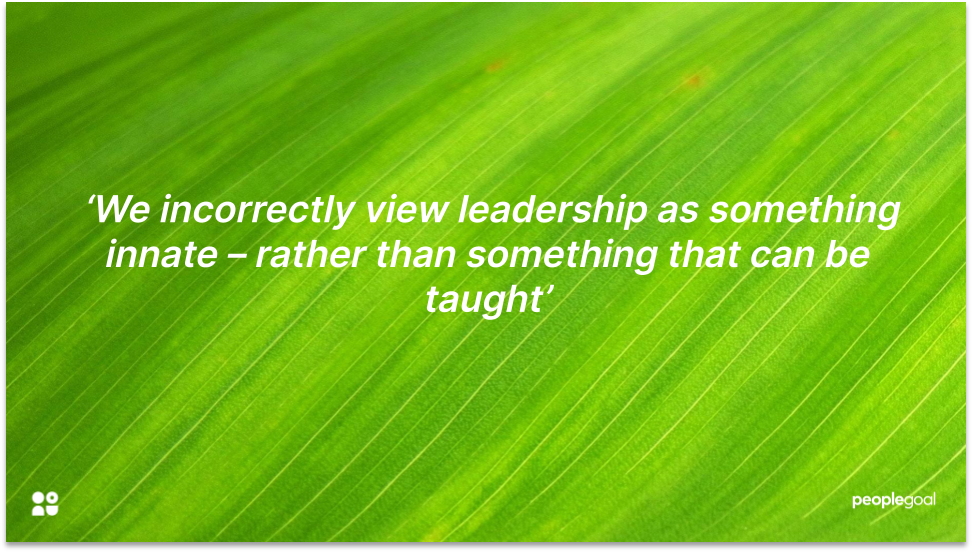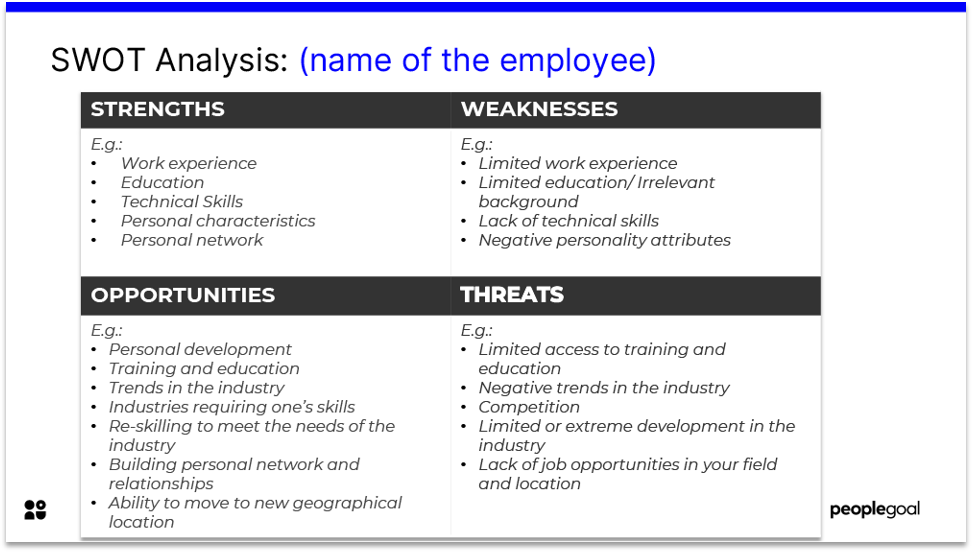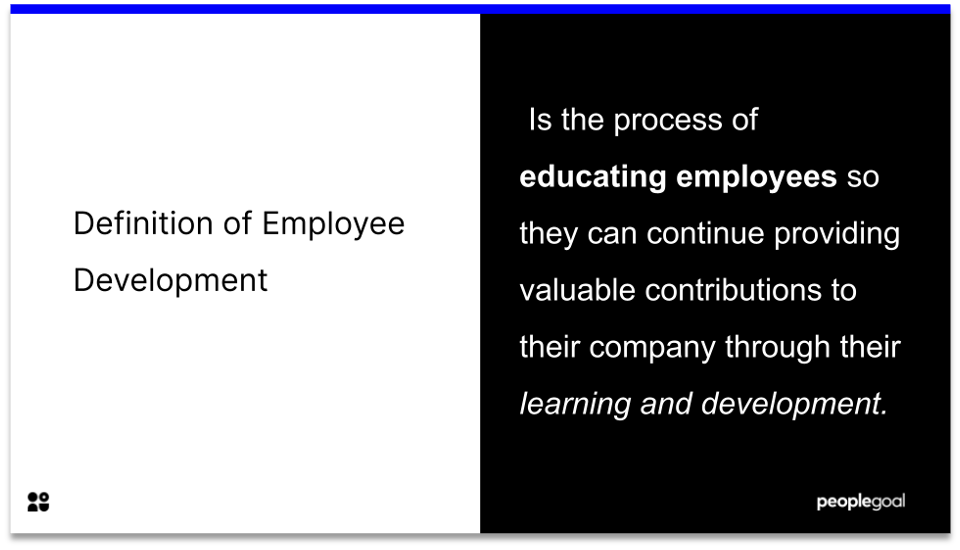Changing the way we think is tough, but as with all habits it takes many repeated, small changes to become ingrained. Nobody gains a growth mindset overnight, and some may think it takes a growth mindset to develop a growth mindset! We don’t think anyone needs to be stuck with a fixed mindset for life, and we’ve got 10 growth mindset examples to show you what we mean.
As demographics in the workplace change and different generations bring different perspectives, it’s important for leaders to be able to recognize a fixed mindset and help their team members to develop at work by encouring a growth mindset.
And when it comes to your own professional development, having a growth mindset will better prepare you to manage the sweeping changes in organizational culture and be ready to learn new skills, and develop new skills in others.
What is a fixed mindset?
An individual with a fixed mindset believes that their qualities and skills are fixed and therefore cannot change. These individuals rest on their laurels rather than attempt to develop their skills. They are convinced that it is talent that gets you places, and not hard work.
Individuals with this mindset believe that they are what they are. Intelligence, creativity, skills and the rest are fixed. In some cases they believe it is futile to try and develop these abilities, because you’re either born with it or you’re not.
What is a growth mindset?
Individuals with growth mindsets on the other hand are the other end of the spectrum. People with a growth mindset believe that intelligence, skills, learning and creativity can all grow with time and experience. They recognize that although individuals may be pre-disposed with certain talents and skills, anyone can learn to develop and grow in the same areas.
An individual with a growth mindset adheres to a mindset capable of substantial growth.
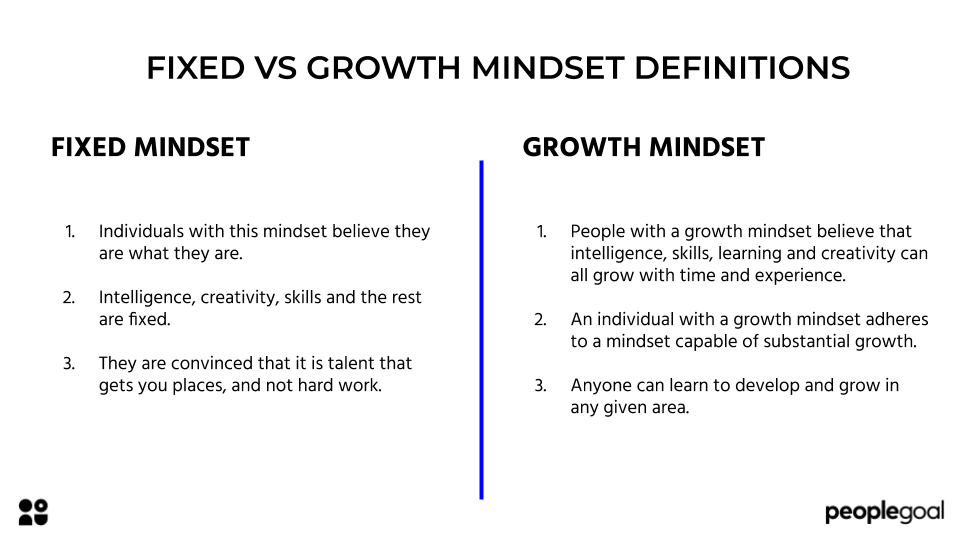
10 Fixed vs Growth Mindset Examples
Let’s take a more in-depth look at these mindsets and provide you with clear examples of what we are talking about when we discuss fixed and growth mindsets.
1. ‘I already know all I need to know’ vs ‘I know that there is more than I can learn’
This is a very dangerous line to take. If we aren’t evolving, then we are de-evolving. Don’t for one second think you could possibly know everything there is to know. Did Einstein stop learning about physics in his mid-thirties? That is right, no.
2. ‘Feedback is criticism’ vs ‘feedback is an opportunity for me to learn about where I can improve’
This can be a slightly more difficult and varied occurrence. Sometimes when feedback is provided, it IS vitriolic or unfair. Other times it is constructive and positive. Often, feedback can be perceived as overly critical or unfair. It is natural to feel defensive about feedback, but it is important to take a step back and try and judge the feedback provided without internal bias. Feedback is there to try to help you develop and improve. Try and reflect on feedback with an open mind and it will help you to develop.
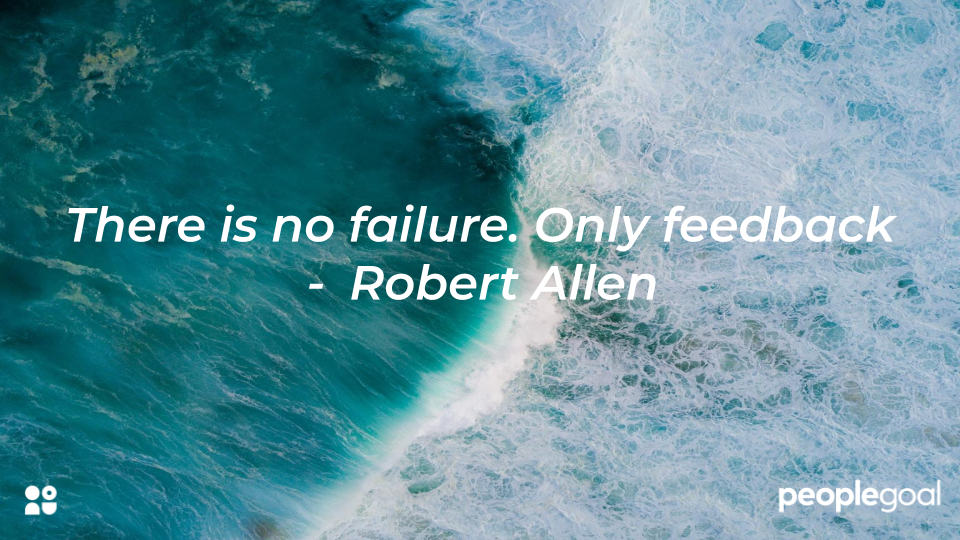
3. ‘What’s the point in trying if I’m going to fail’ vs ‘It’s always good to try, failure is a learning curve’
How does that old adage go…? ‘If at first you don’t succeed try, try and fail again?’. No, that’s not right. ‘Fail, try and fail again?’. Again, no. ‘try, try and try again’. There we go, got there. Every failure is a learning experience. Failure doesn’t mean you CAN’T do something; it just means you haven’t quite got it right yet.
4. ‘Why learn new things, there will always be someone who is better at it than me’ vs ‘It is always good to expand my skills repertoire’
With this mindset you might as well do nothing and lounge about all day. Now I bet this sounds nice, but we’ve all had that period of seemingly sitting on your couch watching TV for what feels like a week, and we feel awful by the end right? Learn new things and take on new opportunities, you’ll definitely learn something. Who knows, you might end up really enjoying new things.
5. ‘There is no more room for promotion, I might as well stick where I am’ vs ‘I know I can develop further, how do I do this to take my career to the next step’
This is a recipe for stagnation. You can always learn and it’s not always necessary to be striving for continuous promotions. Expand your skills repertoire, make yourself adaptable, relevant and even more useful. You never know where your abilities might take you.
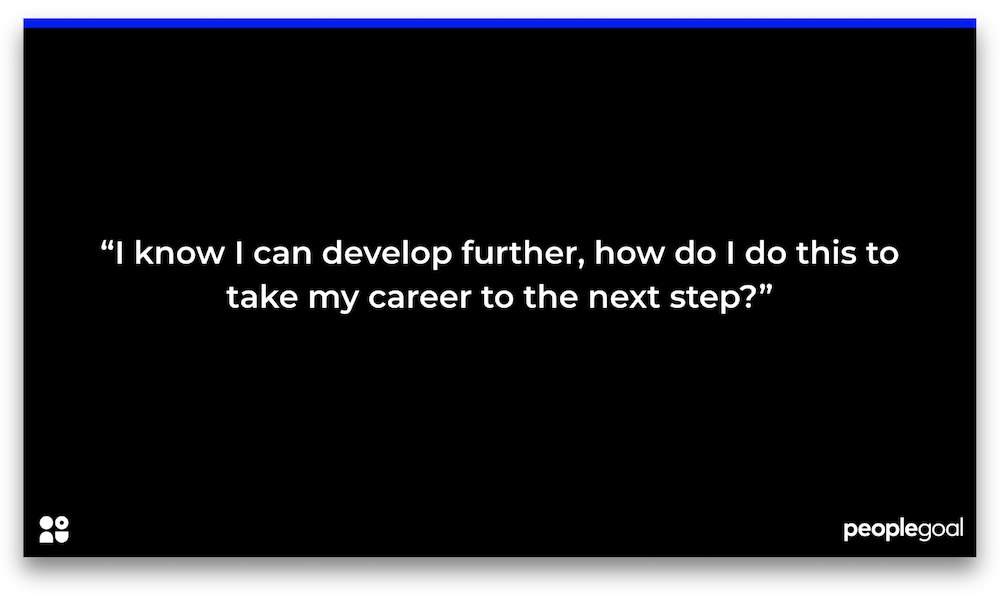
6. ‘I can no longer improve in this area; people should expect no more of me here’ vs ‘There is always room for improvement’
Having a growth mindset means that there is always room to improve. It means that you’re always striving to further your potential. Don’t take this approach that you can no longer improve. You’ll fear dangerously close to stagnation, and perilously close to declining.
7. ‘I am intimidated by the success of others’ vs ‘Looking at others succeed makes me think that I too can succeed’
It is common to be jealous or intimated over others’ success. But more often than not, these people are normal people like yourself. If anything, this should be a prime example that you too can succeed. It shows that this potential and growth is within reach.
8. ‘I struggle with this area, I cannot help anymore’ vs ‘this isn’t my area of expertise, but I can always help, and I can always improve’
Don’t be afraid to learn as you go. In this world of online education and rapid learning, you can learn skills as you go along. With many tasks which may seem particularly difficult, you probably have many of the necessary skills needed already.
9. ‘I’m too old to learn’ vs ‘It’s never too late to learn’
‘It’s never too late to learn’ is a common phrase, and it is almost as common to think that it isn’t true. Here’s another cliché sounding line… ‘growth is a journey’. You never reach the apex of the growth curve. There are always opportunities to learn, you just have to find them.
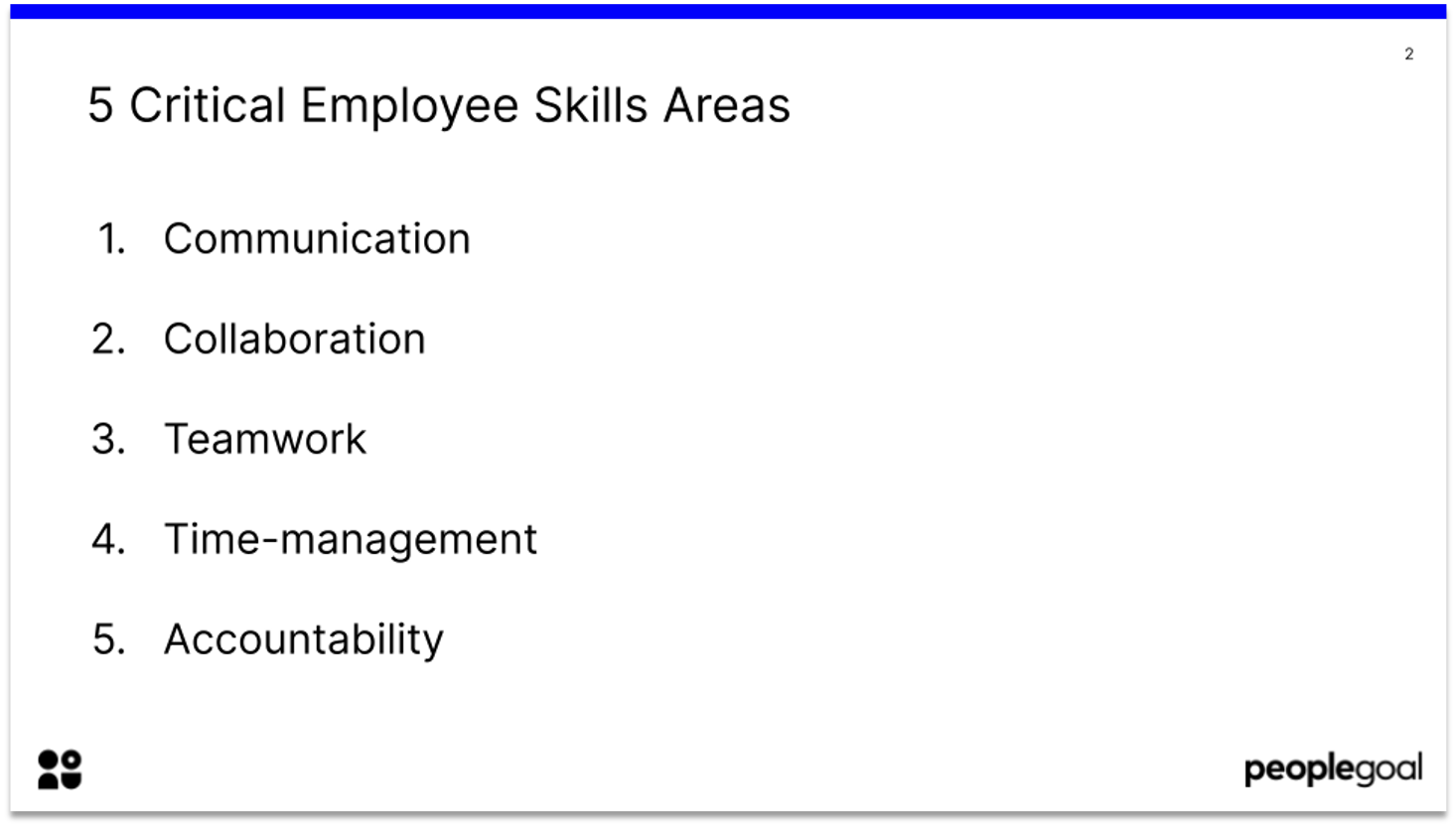
10. ‘I’m good at something or I’m bad at something, nothing else’ vs ‘I know I’m good at somethings, and I know I can become better in some areas’
Einstein once said:
No one is good at everything, but everyone is good at something.
Now as much as this is true, I don’t think the great man went far enough. You could raise a point for the phrase, ‘everyone can be good at a lot of things’. You can be good in multiple areas, and as much as fixed mindset thinkers would have you believe that people think that you are born with an innate ability for certain skills and that’s it… you can build your skills and abilities repertoire extensively. You just have to dedicate time and effort to the process.
No clichés were hurt during the making of this blog.
Do you have any growth mindset examples of your own? Share them with us in the chat! Once you begin the practice of shifting your thinking you’ll find the growth mindset an amazing tool for professional development and job satisfaction.
Ready to 3x Your Teams' Performance?
Use the best performance management software to align goals, track progress, and boost employee engagement.


